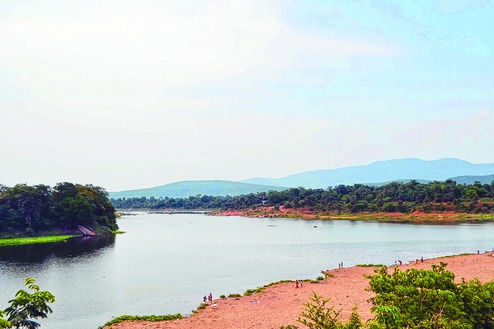
A recent survey carried out by the regional office of Jharkhand State Pollution Control Board (JSPCB) has once again revealed rising levels of pollution in Subernarekha, the lifeline river of Singhbhum.
Water samples were collected in April from five points - Domuhani, Mango (bridge area), Chandil, Moubhandar and Jamshola - with the purpose to test parameters such as pH value, dissolved oxygen (DO), turbidity and total dissolved solids (TDS). The results are certainly concerning if not outright alarming.
The pH value of water exceeded its normal limit in Chandil, Mango and Moubhandar. While the pH of natural water ranges between 4 and 9, these three places showed a range of 7.9 to 9.2.
Similarly, the level of dissolved oxygen, which helps in precipitation and dissolution of inorganic substances in water, was found to be low in Chandil, Domuhani, Mango and Jamshola. Against a desirable limit of 5mg/litre, the DO content in these four places ranges from 3.05mg/ litre to 4.05mg/litre.
The survey further detected excess lead in the water in Chandil, Moubhandar and Jamshola. The prescribed limit of lead in river water is 0.05mg/ litre. But, the three samples had anything between 0.59mg/ litre to 1.80mg/litre.
A JSPCB official admitted that unabated release of industrial effluent into the river was resulting in this lead contamination. Exposure to high dose of lead can result in abdominal discomfort and anaemia. The official said in some areas, the alkalinity and level of calcium were also found to be less than prescribed limits, thanks to pollutants.
Regional officer of JSPCB Suresh Paswan, however, said the situation was not alarming. "Pollutants in river usually increase in peak summer months (March to May) because the water remains stagnant. Once monsoon arrives, the pollution level will go down," he added.
Another official of the pollution control board, requesting anonymity, pointed out that Subernarekha passed through areas that had more concentration of industries and mining activities. "Discharge of industrial effluent and domestic waste are choking the river," he observed, stressing on the absence of a check on pollution.










